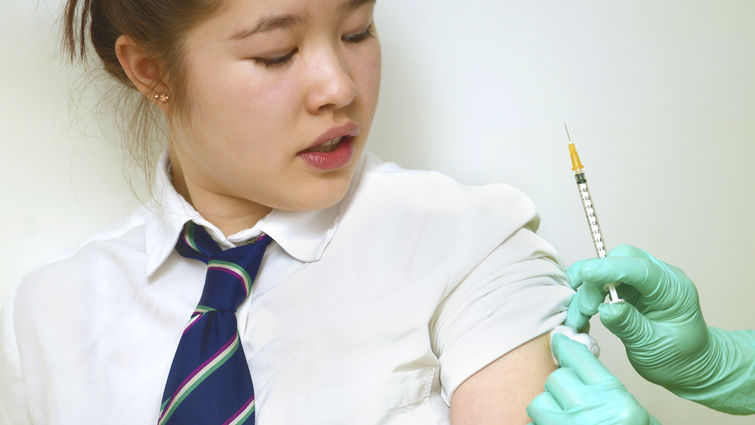

As parents get their children ready to head back to school, it's not just academics and extracurricular activities that should be on their minds. Back-to-school season is an opportunity to make sure their children's health is safeguarded. One important aspect is protecting them against viruses, including Human Papillomavirus (HPV).
HPV is the most common sexually transmitted infection in the United States, and nearly everyone will get HPV in their lifetime, according to the Centers for Disease Control and Prevention.
HPV is spread through sexual activity, including having vaginal, anal, or oral sex with someone who has the virus, even if they don't have signs or symptoms.
Maulin Soneji, MD, a pediatric infectious disease specialist at Loma Linda University Children's Hospital, delves into essential information about HPV and addresses common concerns surrounding vaccination as students embark on the new school year.
Some types of HPV cause can cause cancer, but not all
There are more than 100 types of HPV viruses. Of those, 14 are considered high-risk for causing cancer of the cervix, vagina, vulva, penis, anus, back of the throat, and base of the tongue and tonsils. The types of HPV that can cause cancer are not the same as those that cause genital warts.
Most people with HPV do not know they have the infection. The body's immune system naturally gets rid of some types of HPV within two years, and most people do not have any symptoms.
Some people learn they have the infection when they get genital warts. Women often find out when they receive an abnormal Pap test result.
Cancer-causing infections and precancer prevention
While the vaccine does not prevent all strains of HPV, it is highly effective against the strains that cause cancers, Soneji says.
He recommends that boys and girls ages 11-12 get two doses of the HPV vaccine, but HPV vaccination can start as young as age 9.
Vaccination is also recommended for everyone through age 26, if not fully vaccinated when younger. Some adults ages 27-45 can get vaccinated if they weren’t as children, but the vaccine is most effective if given before someone becomes sexually active.
HPV infections and cervical precancers have dropped since 2006, when HPV vaccines were first used in the United States, according to the CDC.
- Among teen girls, infections with HPV types that cause most HPV cancers and genital warts have dropped 88 percent.
- Among young adult women, infections with HPV types that cause most HPV cancers and genital warts have dropped 81 percent.
- Among vaccinated women, the percentage of cervical precancers caused by the HPV types most often linked to cervical cancer has dropped by 40 percent.
Vaccine hesitancy
Despite the vaccine’s effectiveness, hesitancy remains among some families to vaccinate their children against HPV. This hesitation can stem from various reasons, but a common concern is the misconception that the vaccine promotes early sexual activity. However, Soneji emphasizes that vaccination should be seen as a preventive measure against certain infections that can lead to cancer rather than a green light for engaging in sexual activity. Open communication between parents and their children regarding sexual activity and the purpose of the vaccine is critical to a life-saving preventative measure.
Possible side effects
Side effects from HPV shots can include pain in the arm where the shot was given, fever, nausea, headache or feeling tired, dizziness, or fainting.
Soneji says side effects are temporary and that medical professionals typically monitor patients for a short period after getting the shot before allowing them to go home.
Contact your pediatrician or schedule an appointment to find out which vaccines your child may need before they go back to school.
